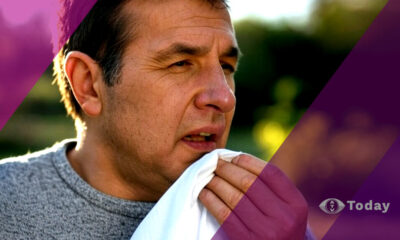Ever felt judged at the gym? You’re not alone – nearly 90% of people share that anxiety…
Now add caffeine to the mix, and you’ve got TikTok full of proffee hacks and coffee-fuelled fitness trends racking up millions of views. But can a cup of coffee really turbocharge your workout, or are these trends more hype than help?
To help new fitness-goers navigate this, Digital PR Agency partnered with Martin Sharp, a personal trainer and founder of Sharp Fit For Life, to break down caffeine myths and share how coffee can complement your fitness journey in 2025.
Coffee Myths in Gym Culture
“High street coffees help to enhance weight loss”
While caffeine before exercise may significantly increase the release of stored fat, stimulating fat breakdown and increasing fat oxidation, this benefit is maximized when paired with proper exercise and nutrition. However, drinking certain coffee drinks can counteract these benefits by adding excess energy intake. A sugary, syrup-heavy coffee might negate the benefits of caffeine.
Martin explains: “If you are thinking, “I love the sound of all those benefits, and I love coffee, though it has to be a bucket of my favourite oat milk white mocha!” which weighing in at 488kcal from the major high street coffee brands is a meal in itself, then perhaps it may be time to look for alternatives, trying skimmed milk, possibly with a sweetener if you need that sweet hit and possibly change the size. A tall Caffe Latte with skimmed milk and sweetener provides 102kcal of energy, which is a more manageable value to fit into your meal plan.”
“Push through the coffee jitters”
Listen to your body. If caffeine disrupts your sleep, exacerbates anxiety, or causes other issues, experts state it’s better to reduce intake or avoid it altogether. For these individuals, non-caffeinated alternatives or lower doses may be better.
While caffeine can boost energy, focus, and fat-burning for many, it affects individuals differently. For some, it can cause jitteriness, anxiety, heart palpitations, or disrupt sleep, which may negatively impact overall performance and recovery.
“Drinking coffee during your workout will enhance performance”
You may see gym-goers with a coffee in hand, thinking an Americano during a workout will provide a mid-session energy boost to enhance performance and beat tiredness. However, experts explain you should be wary as the timing of caffeine consumption is important to your workout.
For optimal benefits, coffee or other caffeinated products should be consumed before your workout – ideally 30–60 minutes prior – to allow the caffeine to take full effect.
How can coffee enhance exercise performance?
Digital PR Agency explains the science behind caffeine’s impact on fitness:
“Balancing fitness with busy schedules and reduced sleep is among the most common challenges faced by newbies in the New Year, and when taken in the correct amount, coffee’s enhancement of performance can be valuable. Incorporating caffeine into your fitness plan can help with staying energised, focused and ready to tackle New Year’s resolutions confidently.
“Studies have highlighted coffee as a powerful tool for those looking to achieve their goals in 2025. As the most widely consumed psychoactive substance, caffeine has been proven to enhance physical performance by 2% to 5% on average, offering fitness newcomers an extra boost as an effective tool for anyone picking up fitness this January.
“Aerobic activities like running, swimming and cycling are among the exercises that reap the most benefit from caffeine, helping to sustain effort for longer periods. Research has also shown those participating in activities such as weightlifting and high-intensity interval training with extra caffeine see improvements in strength, endurance, and explosive movements.
“To achieve the most optimal boost in energy, experts recommend small to moderate doses of 3–6 mg per kilogram of body weight, taken about an hour before exercise, are recommended. However, research has found that higher doses (e.g., 9 mg/kg) increase the likelihood of side effects without the additional benefits*.”
*International society of sports nutrition position stand: caffeine and exercise performance











